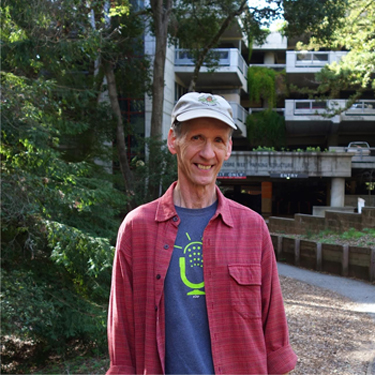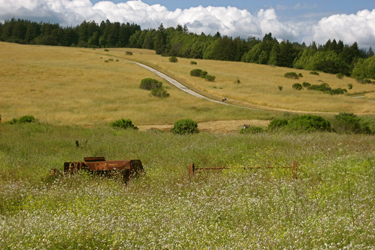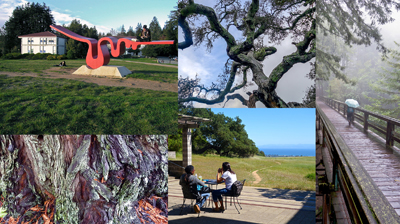Campus News
Discovering the UC Santa Cruz Campus: Jim Clifford to give Spring Emeriti Faculty Lecture
“In the Ecotone: The UC Santa Cruz Campus” is a new book by emeritus humanities professor Jim Clifford that reflects on the campus as an extraordinary architectural and ecological site.




In the Ecotone: The UC Santa Cruz Campus is a new book by emeritus humanities professor Jim Clifford that reflects on the campus as an extraordinary architectural and ecological site.
Over 50 color photographs are accompanied by essays that, as Clifford puts it, “search for an ecological language and an aesthetic that can do justice to the site’s complexity.”
The photographs are all taken between 2001 and 2015, while the text tracks UCSC’s experiment with environmental design from it’s very inception, follows it through changing times, and contemplates its continued significance.
Clifford described how the project came about.
“I wanted an outlet for my growing archive of photographs. And I thought we needed more strong images of the place,” he explained “After Ansel Adams’s black and white photos from the ‘60s, there isn’t much that’s easily available—just some postcards (all taken when the sun is shining).”
“The color images show familiar and unusual perspectives–the campus in different lights, in fog, the underside of bridges, trees that seem to invade the buildings, shots up close and distant out across the great bay. And the book design is by Richard Wohlfeiler, a terrific artist, for years a mainstay in the UCSC Art Department.”
“I see it as an addition to The excellent Natural History and the wonderfully weird Unnatural History of the Santa Cruz campus,” he added.
Clifford will discuss the interaction of architecture and ecology at UC Santa Cruz on Tuesday, March 8, when he delivers the 2016 Spring Emeriti Faculty Lecture on campus at the Music Center Recital Hall, beginning at 7:30 p.m. Admission is free and open to the public.
“I’ll talk about the way I’ve come to know the campus,” said Clifford. “When I arrived in 1978, like so many others, I was amazed by the place. Its beauty was just overwhelming. And then I settled into my work and stopped really noticing. Then, around 2000 I started taking digital photographs, and this opened up the place. I began to notice all the different views, the alternating light-environments, the seasonal changes. In the lecture I’ll describe some of what I discovered, and show a lot of images.”
“I’ll also say something about the early planning choices that made the campus what it is,” he added. “For example the crucial decision not to build in the meadow but instead in the transition zone from forest to grassland, what ecologists call the ecotone. How did a large university get built among the redwoods and rugged ravines and knolls, without ruining the place? It wasn’t inevitable.”
Clifford came to UCSC in 1978 to join the History of Consciousness Department. He earned a Ph.D. from Harvard in history, but benefiting from the interdisciplinary environment at UC Santa Cruz, he has worked extensively in cultural anthropology and literary/cultural studies.
He was the founding director of the UCSC Center for Cultural Studies and is a Guggenheim Fellow and Member of the American Academy of Arts and Sciences. His books include The Predicament of Culture, Routes: Travel and Translation in the Late 20th Century, and most recently, Returns: Becoming Indigenous in the 21st Century. He retired in 2010.
Clifford noted that no other university has been built on so complex and rugged a site as UC Santa Cruz.
“Thomas Church, the great landscape designer who was instrumental in planning the campus, advised the early architects: ‘Don’t compete with the redwoods. They’re going to win,’” said Clifford. “The builders listened to him, and so here the physical environment isn’t just a setting for the architecture. It IS the architecture! That’s something special.”
“The solutions for some quite difficult problems of siting and scale at UCSC are exemplary,” he added. “I think the place is still a brilliant work of environmental art.”
In the Ecotone: The UC Santa Cruz Campus is available for $12.95 at the UCSC Bay Tree Bookstore, as well as at The Literary Guillotine and Bookshop Santa Cruz. For more information about the free 2016 Spring Emeriti Faculty Lecture on March 8, call (831) 459-5003 or contact specialevents@ucsc.edu.